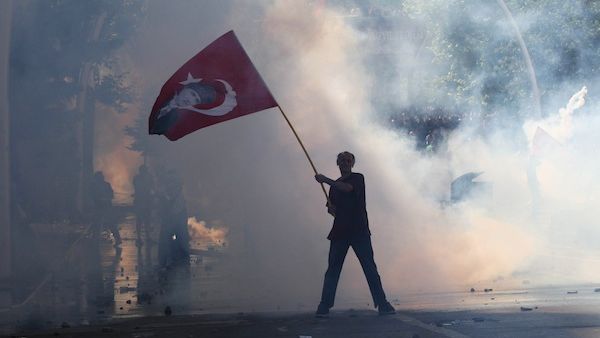Turkey's opposition spoke out Thursday against "scandal-hit" Prime Minister Tayyip Erdogan, accusing him of trying to rule the country via a "secretive 'deep state,'" according to Reuters.
The Turkish PM reshuffled his cabinet this week, appointing 10 new ministers loyal to his rule Wednesday. One of the appointments considered severely controversial is Efkan Ala to direct Interior Ministry affairs and oversee domestic Turkish security. The former governor of the "restive" Diyarbakir province has sparked some of the strongest commentary form the opposition opposition's comments.
"He (Erdogan) is trying to put together a cabinet that will not show any opposition to him. In this context, Efkan Ala has a key role," said Kemal Kilicdaroglu, the leaderof the largest Turkish opposition party, CHP. "Erdogan has a deep state, (his) AK Party has a deep state and Efkan Ala is one of the elements of that deep state."
In Turkey, the term "deep state" is used "to denote a shadowy power structure unhindered by democratic checks and balances."
Unlike other ministers, Ala is not considered a member of parliament and does not have to answer directly to any constituency. In his previous government posts, the newly-appointed minister has been a big proponent of cracking down on demonstrators not loyal to Erdogan's administration.
Ala was appointed by Erdogan to replace Muammer Guler. The former minister resigned after his son was detained in what was considered a "graft probe" earlier this month. Guler, who described the police inquiry "a plot," was forced to sack and reassign dozens of security forces involved in corruption, including the chief of force in Istanbul.
According to Reuters, the police corruption scandal has become "a potent and personal one" for the Turkish PM. Erdogan has even called the "graft investigation" into the Turkish police corruption scandal as "tainted by foreign interests" and vowed that Ankara has "no tolerance for corruption."
However, the opposition and the world seem to think otherwise, with even Turkish stocks and the country's lira falling to a historical low of 2.1025 against the dollar earlier this week.








